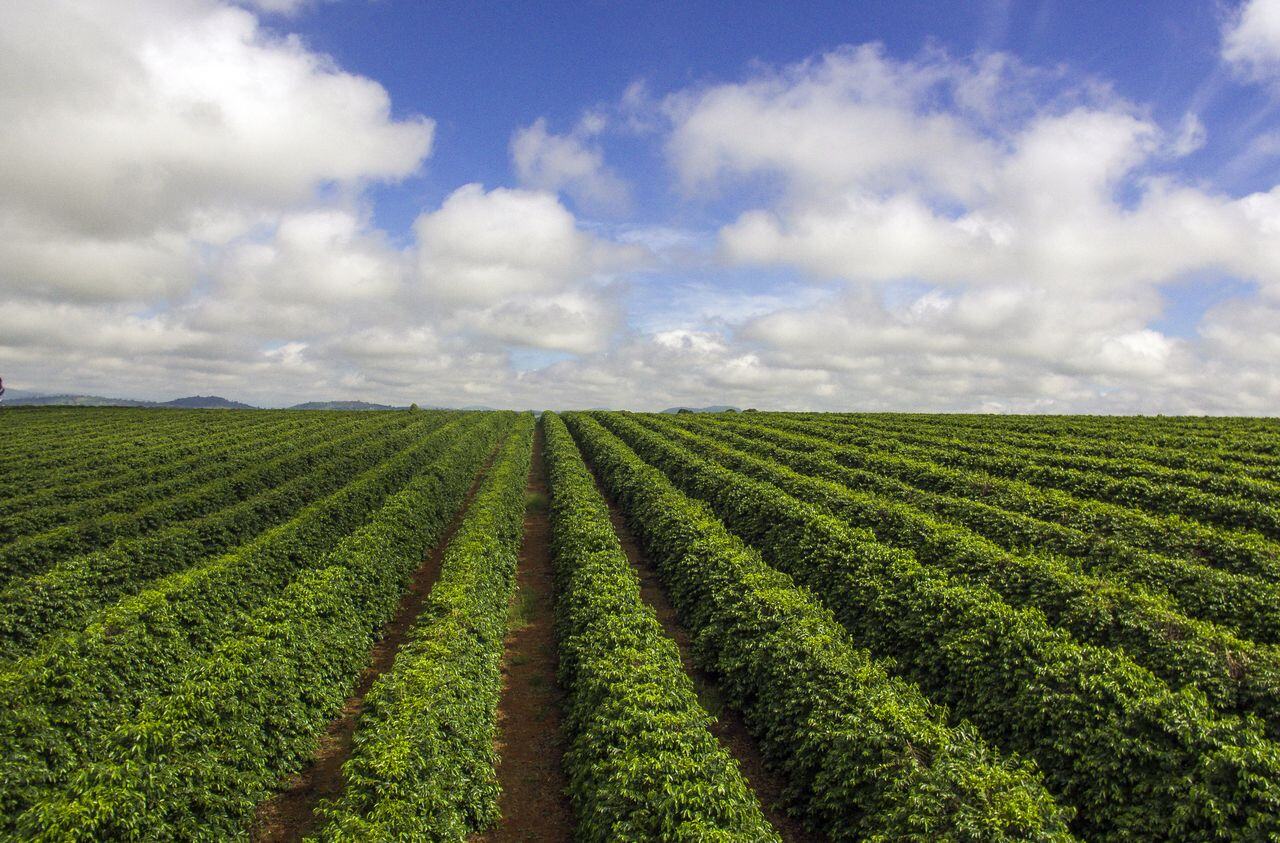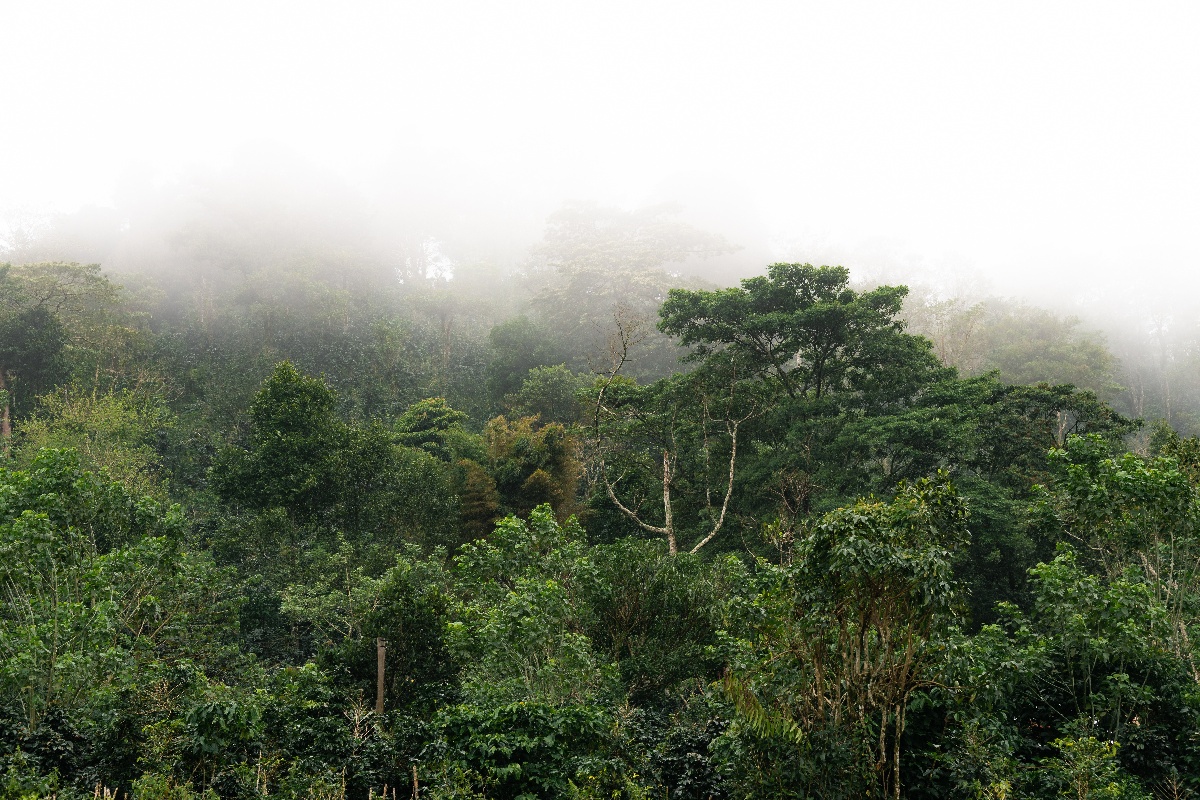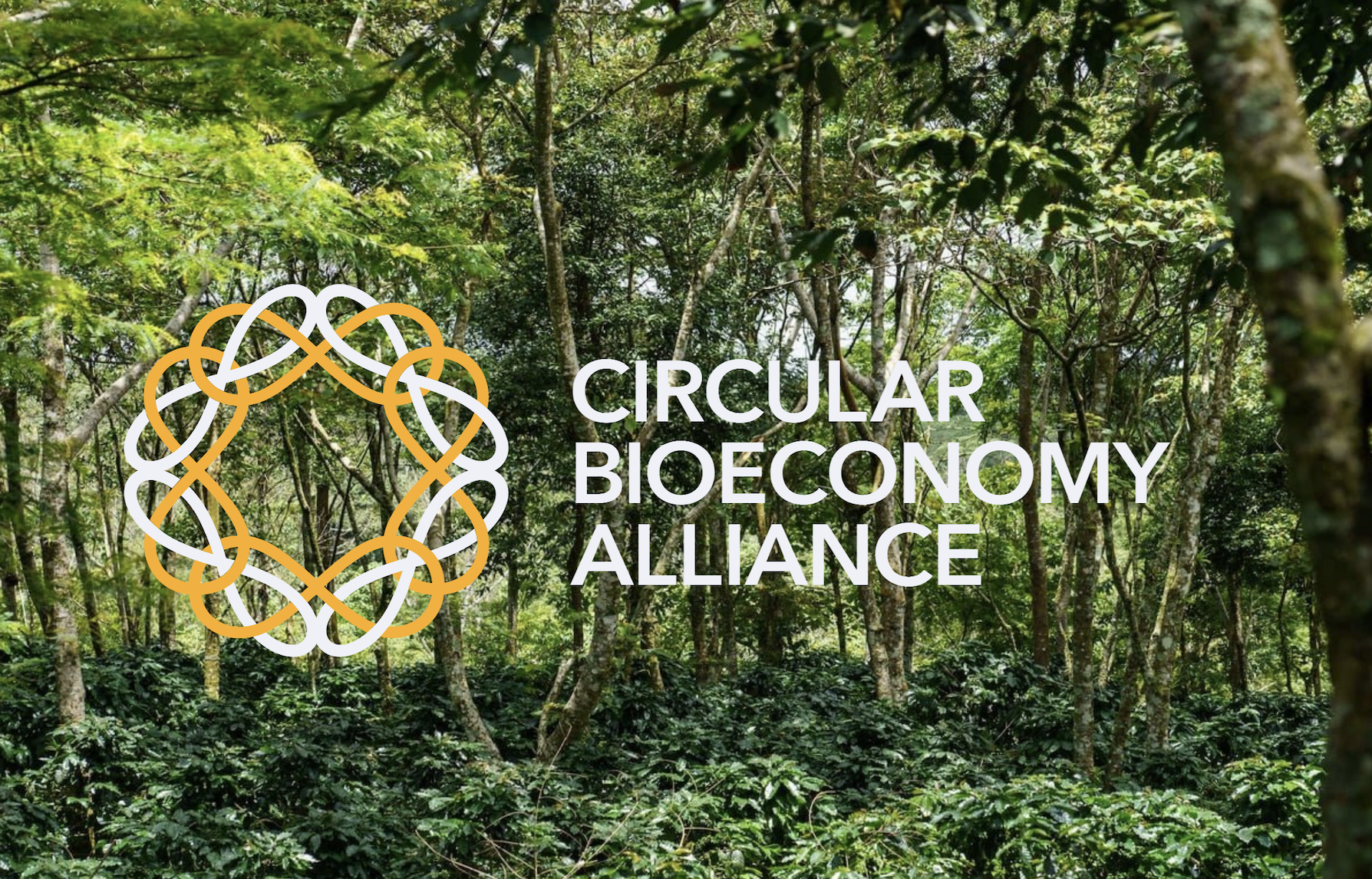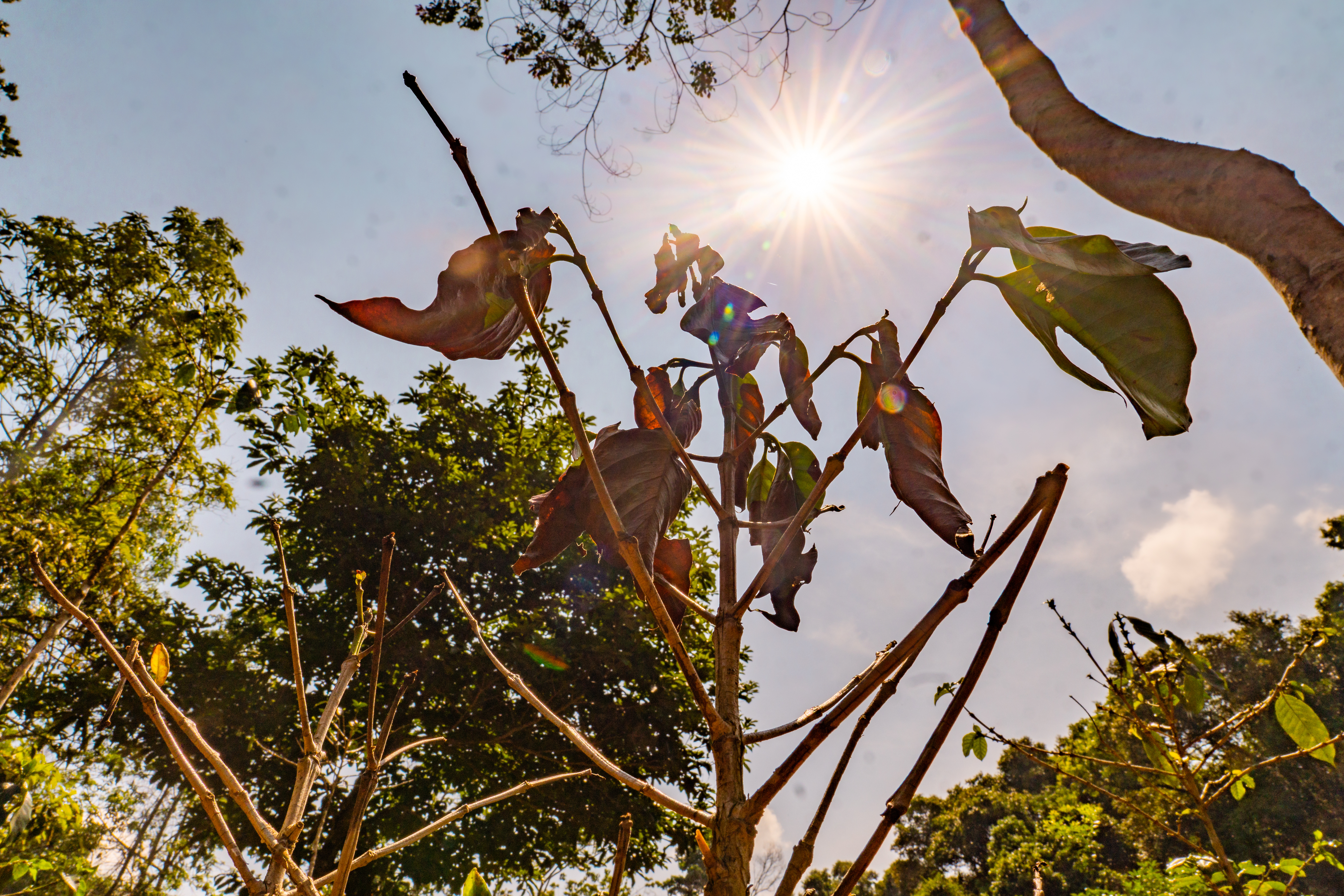What 'shade-grown' means on your coffee bag?
Jul 27, 2024 - 2 min read
Have you ever noticed 'shade-grown' on your coffee bag and wondered what it means?
More than just a label, shade-grown coffee is a different way of growing coffee beans, in the shade of a rainforest.
This way of growing protects the trees, but it also means fewer coffee plants can grow on the same amount of land. As a consequence, shade-grown coffee tends to cost a bit more to produce.
-1.jpg)

Left: Shade-grown coffee grown under a canopy of trees that filter the sun, offering a more sustainable and flavourful cup. Right: Sun-grown coffee cultivated in open fields for higher yields, often relying on chemical inputs.
Shade-grown vs sun-grown, what's the difference?
In the 1970s and 1980s, the coffee industry shifted towards sun-grown coffee, a new way of growing coffee for higher yields - planting coffee in open fields, without trees for shade. This method, while boosting production, harms the environment and reduces biodiversity.
Since these plants lack the natural protection of shade - a key element in traditional, shade-grown coffee - they rely heavily on chemical fertilisers and pesticides like DDT, malathion and benzene hexachloride to stay healthy and control pest.

The morning mist blankets Slow's shade-grown farms in Laos © Slow/Saosavanth Ketmala
A comparison by the Smithsonian Migratory Bird Center shows that around 150 bird species can live on shade-grown coffee plantations in the rainforest, compared to only about 20 found on sun-grown plantations. This shade acts as a natural umbrella, helping many species avoid extinction. At the same time, birds become natural allies for the farmers by feasting on insects that would otherwise damage the crops, reducing the need for pesticides.
Read also
Why choose shade-grown coffee?
Grown under a leafy canopy, shade-grown coffee helps farmers, protects the environment and often produces a richer flavour. As the need to feed a growing population while also protecting the environment becomes more acute, there has been a resurgence of interest in shade-grown agroforestry.
Shade-grown coffee helps to conserve species that grow within forests and have been depleted in the wild through overharvesting. It offers an opportunity to sustain an ecosystem while also growing cash crop. This additional income stream can be particularly vital for forest communities in developing countries, where forests are often threatened by logging and agricultural expansion.
%20Wildlife%20in%20Slow%20Lakkhao%20farm.webp?width=1500&height=730&name=Asian%20mongoose%20(Herpestes%20javanicus)%20Wildlife%20in%20Slow%20Lakkhao%20farm.webp)
Look who we found searching for a tasty treat, captured by our farm's nature camera. This little mongoose is a natural-born pest controller. © Slow
Shade-grown plants often live twice as long as those exposed to full sun. And, the presence of more tree leads to reduced soil erosion, acid runoff and irrigation requirements on farms.
In Slow's shade-grown coffee farms in Laos, farmers have begun harvesting macadamia, avocado and pomelo from their shade-grown farms, which also host fruit and native trees. If the market isn't good for one, then another one pick up.
Beyond benefiting farmers and the environment, shade-grown coffee also appeals to consumers. Many coffee drinkers think it as having a richer, less bitter taste. This is often attributed to the beans not being "baked" in direct sunlight, allowing for a longer ripening period, which contributes to a more aromatic cup.
At the moment demand for shade-grown coffee is relatively small, but that can change. If more coffee drinkers started buying shade-grown coffee, the remaining rainforest, nurtured by shade-grown practices, could play a more significant role in combating climate change by absorbing carbon dioxide rather than suffer from the planet's insatiable appetite for a cup of coffee.
Want to learn more about what we do? Contact us
Join Our Newsletter

Slow acquires African Coffee Roasters – A New Era for Sustainable Coffee
Big news from Slow. African Coffee Roasters is now part of the Slow family. And this isn’t just an acquisition—it’s a major step forward in how...

Adopting and embracing CBA’s Principles for Regenerative Landscapes
A few years ago, coffee and chocolate were just products. But at Slow, we’re changing the story. We’re not just selling beans and cocoa, we’re...

When coffee pricing becomes ‘climate-driven’
For years, coffee prices moved with supply, demand, and speculation. That equation has changed.

